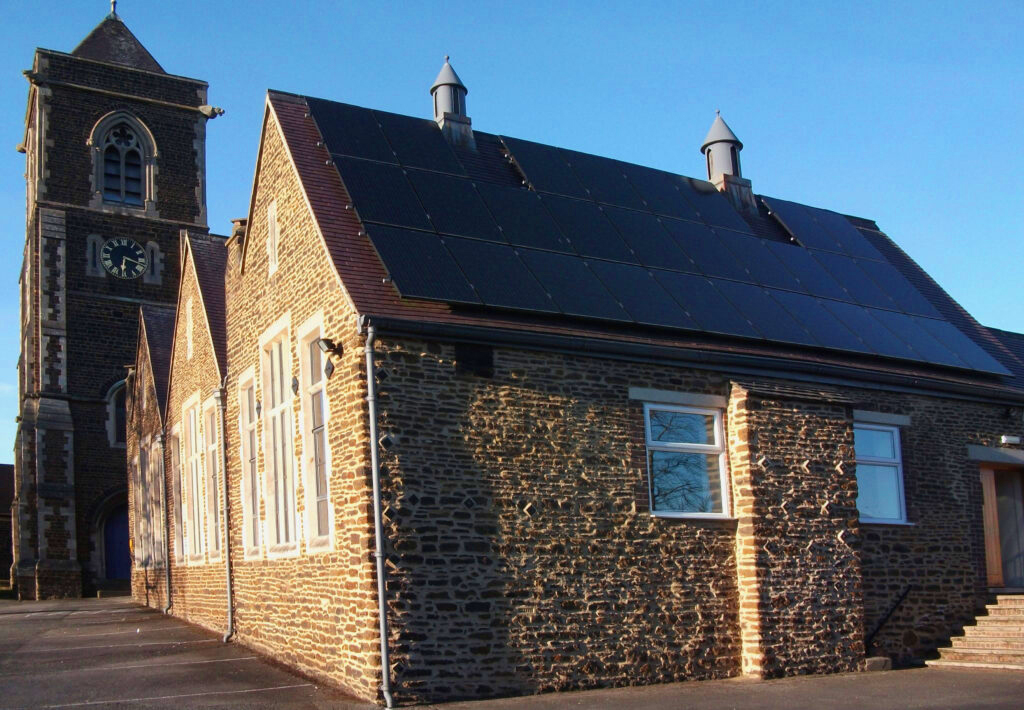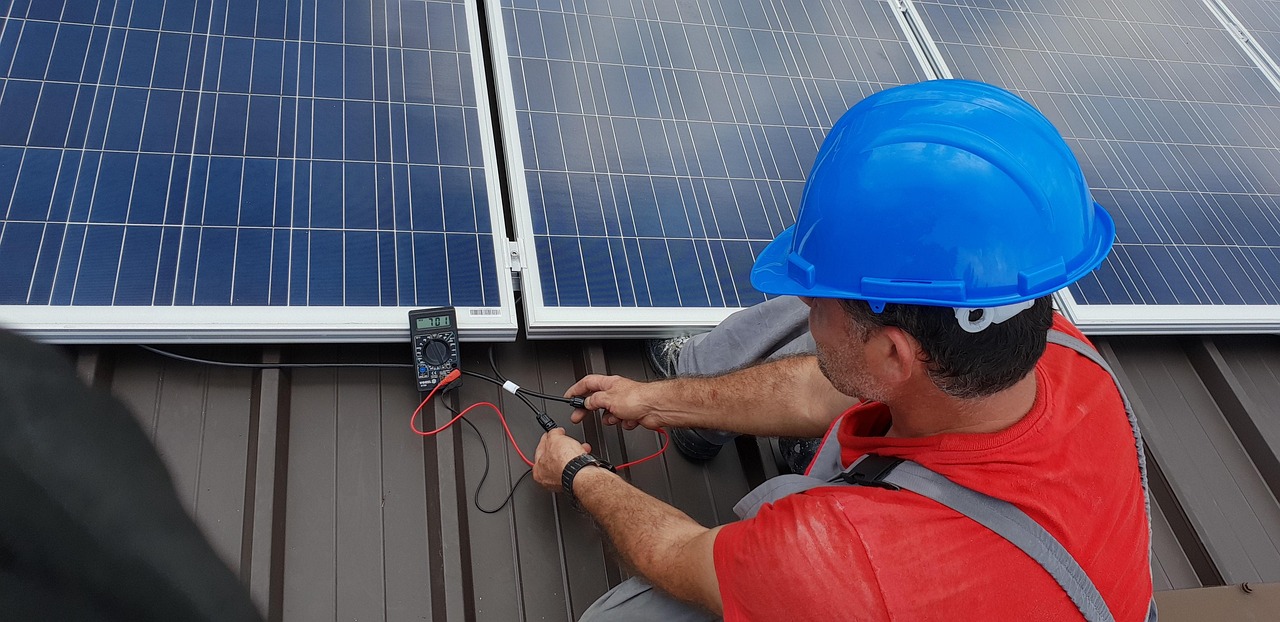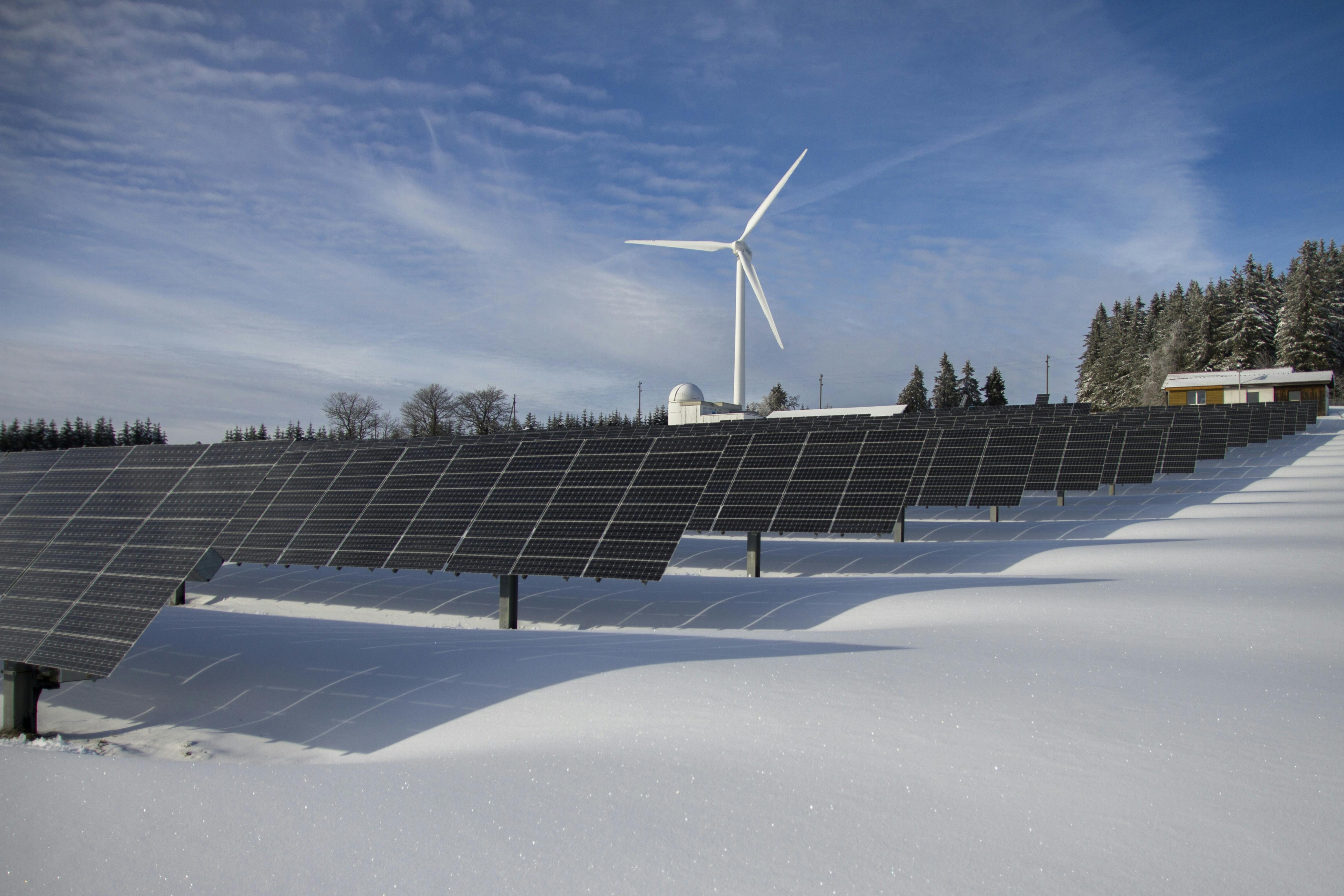A 2026 Guide on Solar Panels for Your Home
Our complete solar panel guide - learn how they work, their suitability for the UK, and how to choose the right one for you.

Solar panels, once seen as a futuristic technology, have quickly become a smart and appealing investment for today’s homeowners. These sleek, energy-generating devices are revolutionising how we power our homes, offering a sustainable and environmentally friendly alternative to traditional energy sources. If you’re interested in tapping into solar power to lower your energy bills and reduce your carbon footprint, you’re in the right place.
This guide provides a comprehensive overview that covers everything from the basics of how solar panels operate to the practicalities of installation and the many benefits they offer. So, let’s dive into the world of solar panels, explore how they work, assess their value, and help you determine whether they’re the right choice for your home.
Key Takeaways:
How Do Solar Panels Work?
Solar panels function as nature's power stations, harnessing sunlight and converting it into electricity. This process begins with an extraordinary material called photovoltaic cells, or solar cells for short. Here’s how they operate:
1. Capturing Sunshine
Picture each solar panel as a collection of countless tiny cells, all collaborating to capture the plentiful sunlight that bathes our planet daily. When sunlight, made up of small energy packets known as photons, strikes these cells, a fascinating process begins to unfold.
2. Photovoltaic Magic
Photovoltaic cells, typically crafted from silicon, are the true stars of the process. They possess a unique characteristic: when sunlight hits them, it energizes the electrons within the cells. These energised electrons begin to move, generating an electric current. This movement is a crucial step in transforming sunlight into electricity.
3. Generating Electricity
As the electrons flow through the cells, they create direct current (DC) electricity. However, most of our appliances and the electricity grid itself use alternating current (AC). To make it compatible, an inverter inside your solar system works its own magic, converting DC into AC. This is what powers your lights, appliances, and everything else in your home.
In a nutshell, solar panels work by harnessing sunlight, exciting electrons in photovoltaic cells, and converting that excitement into the electricity that powers your home. This simple yet ingenious process is at the heart of how solar panels generate clean, renewable energy for you and your family.

Do Solar Panels Work In the UK?
A common myth is that solar panels are only effective in sunny regions, which might make them seem impractical for the UK with its often cloudy skies and frequent rain. In reality, the truth is much more encouraging.
1. Sunlight, Not Just Sunshine
Solar panels don’t need intense sunshine to generate electricity; they operate based on daylight, not direct sunlight. Even on cloudy or overcast days, they continue to produce energy. This is because they are designed to capture a broad spectrum of light, not just the bright, direct rays of the sun.
2. The Power of Diffuse Light
Solar panels are incredibly effective at converting diffuse sunlight into electricity. Even when the sun is obscured by clouds, they can still gather enough energy to power your home.
3. Debunking Myths
So, to debunk the myth that solar panels don't work in the UK for good, let’s wrap this section up by saying that they absolutely do, and what's more, they work quite effectively. In fact, the UK receives enough daylight throughout the year to make solar panels for your house a viable and worthwhile investment.
If you want to explore this topic in more detail, check out our article on 'whether solar panels need direct sunlight.' It offers valuable insights into how solar panels operate under various weather conditions.
Types of Solar Panels
When it comes to harnessing solar energy, not all panels are created equal. There are many different types of solar panels, three of the most popular being Monocrystalline, Polycrystalline and Thin-Film. Each type offers its own advantages and disadvantages. Understanding these differences is crucial for choosing the right panel type that suits your specific needs.
1. Monocrystalline Solar Panels
Advantages DisadvantagesEfficiency: Monocrystalline panels are known for their high efficiency, making them excellent for limited roof space.Cost: Monocrystalline panels are typically more expensive than other types of panels.Durability: They have a longer lifespan and are more resistant to wear and tear.Temperature Sensitivity: Their efficiency can drop slightly in very high temperatures.Aesthetics: Monocrystalline panels tend to have a sleeker, black appearance, which some homeowners find more attractive.
2. Polycrystalline Solar Panels
Advantages DisadvantagesCost-Effective: Polycrystalline panels are generally more affordable than monocrystalline and thin-film panels.Lower Efficiency: Polycrystalline panels are less efficient than monocrystalline panels, so you may need more roof space to achieve the same energy output.Lower Energy Costs: While slightly less efficient, they are still highly capable of generating electricity.Appearance: They are often less aesthetically pleasing due to their blue speckled appearance.
3. Thin-Film Solar Panels
Advantages DisadvantagesFlexibility: Thin-film panels are lightweight and flexible, allowing for creative installation on various surfaces.Lower Efficiency: Thin-film panels are less efficient than crystalline silicon panels, requiring more space for the same energy production.Cost-Efficiency: They are typically the most cost-effective option, making solar power more accessible.Shorter Lifespan:They have a shorter lifespan compared to other types.
Choosing the Right Panel Type
Choosing the right panel type depends on your specific needs and priorities. Here are some guidelines:
- If you have limited roof space: Monocrystalline panels are an excellent choice due to their high efficiency.
- If cost is a primary concern: Polycrystalline panels offer a cost-effective option without compromising significantly on efficiency.
- For creative installations: Thin-film panels provide flexibility in placement but may require more space.
It's essential to consider factors such as your budget, available roof space (guide to how many solar panels can fit on your roof), and aesthetic preferences when selecting a solar panel type. We'd recommend checking out our guide on how to choose the best solar panels for your home - It covers everything you need to consider in more detail.
Consulting with a solar professional can also help you make an informed decision. We offer a great tool that can help you pick the best solar panels based on your unique circumstances, let’s dive into how it works.
Calculating Your Solar Energy Potential
Harnessing solar energy begins with understanding your property's solar potential. Fortunately, we offer a powerful Solar Energy Estimation Tool that simplifies this process. It’s designed to provide homeowners with a comprehensive assessment of their solar potential.
How the Tool Works
1. Input Your Details: To get started, you'll need to answer a few straightforward questions about your home. The tool will ask for details such as your postcode, the direction your roof faces, and how steep your roof is.
2. Accurate Energy Estimation: Once you've provided these details, the calculator goes to work. It accurately calculates how much energy you could harness from the sun in an average year based on your location and roof characteristics.
3. Cash Savings Projection: The tool doesn't stop at energy estimations. It translates these figures into potential cash savings, giving you a clear picture of the financial benefits of solar panel installation.
4. Tailored Solar Panel Recommendations: One of the standout features of our tool is its ability to provide tailored solar panel options that suit your property best.
5. Connecting with Trusted Suppliers: Should you wish to proceed with solar panel installation, MakeMyHouseGreen can connect you with trusted suppliers and installers in your area. This ensures that you get reliable service and high-quality solar panels for your home.
Why Use the Solar Energy Estimation Tool
Saves Time - Calculating your solar potential can be a complex task. This tool streamlines the process, making it quick and hassle-free.
Customised Recommendations - Instead of a one-size-fits-all approach, the tool provides personalised recommendations based on your unique circumstances.
Financial Clarity - By projecting cash savings, the tool helps you make an informed decision about the financial benefits of solar panels.
The Role of Solar System Batteries
When you think of solar panels, you might imagine them as standalone devices that generate electricity during the day. However, there's more to the equation, and that's where solar system batteries come into play.
What Are Solar System Batteries?
Solar system batteries are energy storage units that work alongside solar panels to optimise the utilisation of solar-generated electricity. They serve as a vital component in residential solar energy systems, offering several benefits:
Energy Storage - Solar panels generate electricity primarily during daylight hours. However, homes require power both day and night. Solar system batteries store excess energy produced during the day for use during the night or on cloudy days when solar production is reduced.
Grid Independence - With a solar system battery, homeowners can reduce their reliance on the grid. Excess energy can be stored and used when needed, reducing the need to draw power from the grid during peak hours when electricity prices are higher.
Backup Power - Solar batteries provide a backup power source during grid outages. This feature ensures that critical appliances and systems, such as lights, refrigeration, and heating, continue to operate when the grid is down.
For example, solar panels in Hampshire, where the sun's intensity is a solid 535 w/m2, could generate around 5534 kWh annually - drastically reducing grid reliance.
How Do Solar System Batteries Work?
Solar system batteries are designed to store and discharge electrical energy efficiently. Here's a simplified breakdown of how they function:
1. Charging - During periods of abundant sunlight, surplus electricity generated by solar panels is directed to the battery for storage.
2. Discharging - When electricity demand exceeds solar panel production, such as during the night or on cloudy days, the battery discharges stored energy. This electricity flows through the inverter where it’s converted into AC current, which can then be used to power your household devices and appliances.
3. Monitoring and Management - Modern solar system batteries are equipped with advanced monitoring and management systems. These systems optimise battery charging and discharging, ensuring efficient energy utilisation.
Solar Panel Costs & Financial Considerations
Investing in solar panels offers numerous financial benefits, making it an attractive option for homeowners looking to save money while reducing their environmental footprint.
Cost of Purchasing and Installing Solar Panels
The cost of purchasing and installing solar panels can vary based on several factors, including the size of the system, the type of panels chosen, and the complexity of the installation. On average, a small 3kW solar panel system (with no batteries) can cost between £6,000 and £7,000.
Again, we’d recommend using our tool to receive an accurate cost estimation based on your property and its unique characteristics.
Available Incentives and Government Programs
The UK government provides incentives and programs to encourage the adoption of solar panels:
- Feed-in Tariff (FiT) - While the Feed-in Tariff scheme has closed to new applicants, if you installed solar panels before March 2019, you might still be eligible to receive payments for the excess electricity you generate and export to the grid.
- Smart Export Guarantee (SEG) - The SEG is the current scheme for homeowners with solar panels. It mandates that energy suppliers pay you for the surplus electricity you export to the grid. Rates may vary between suppliers.
- Renewable Heat Incentive (RHI) - Although not specific to solar panels, the RHI offers financial incentives to homeowners who use renewable technologies for heating, such as solar thermal systems.
- Green Homes Grant - While the Green Homes Grant has expired, it's worth keeping an eye on future government initiatives that may support energy-efficient home improvements, including solar panels.
Long-Term Financial Benefits
Solar panels offer significant long-term financial advantages:
- Savings on Energy Bills - By generating your electricity, you reduce your reliance on energy suppliers, resulting in lower energy bills.
- Return on Investment (ROI) - Solar panels typically have a return on investment period of 5 to 10 years, depending on various factors like system size, energy consumption, and government incentives. After this period, you'll enjoy free electricity for years to come.
- Income Generation - If you're eligible for the SEG, you can earn additional income by exporting surplus energy to the grid.
- Increased Property Value - Solar panels can increase your property's value, making it more attractive to potential buyers if you decide to sell. We’ll touch on this in more depth a little further down in this article.
Real-Life Case Study: Meet Solomon
Meet Solomon, a satisfied MakeMyHouseGreen customer. Solomon installed solar panels on his home and, in just two months, saved an impressive £630 on his energy bills. His story is a testament to the real financial benefits of solar panel ownership. Read more about Solomon’s solar panel case study.
Do Solar Panels Increase a Property's Value?
The answer is generally yes. Numerous studies and reports suggest that solar panels can increase a property's resale value. This is due to them significantly boosting your property’s EPC rating. According to Money Supermarket, you can increase the value of your property by up to 14% if you were to increase your EPC rating to an A/B.
Homes equipped with solar panels are more energy-efficient, thus the higher EPC rating. They generate their electricity, reducing reliance on traditional energy sources. This leads to lower energy bills, making the property more attractive to potential buyers. Furthermore, energy-efficient homes align with the growing demand for environmentally friendly and cost-effective living. This can all contribute to higher demand for properties with solar panels and thus help increase the resale value of your house.
Environmental Benefits of Solar Panels
Solar panels are more than just an investment for your home; they are also a powerful tool for promoting a greener and more sustainable world. Here are some of the key environmental benefits of solar panels:
1. Reduced Carbon Emissions - Solar panels generate electricity without emitting harmful greenhouse gases like carbon dioxide (CO2). By harnessing the power of the sun, they help reduce the carbon footprint associated with traditional fossil fuel-based electricity generation. This reduction in CO2 emissions is a crucial step in combating climate change and improving air quality.
2. Decreased Reliance on Fossil Fuels - Solar energy reduces our dependence on finite and polluting fossil fuels such as coal, oil, and natural gas. As we transition to cleaner energy sources like solar power, we decrease the extraction, transportation, and burning of fossil fuels, which are major contributors to environmental degradation and global warming.
3. Sustainable Energy Source - Solar energy is renewable and sustainable. Unlike fossil fuels, which are finite resources, the sun is an almost limitless source of energy. As long as the sun shines, we can harness its power for electricity generation. This sustainability ensures a long-term energy solution that does not deplete valuable resources.
4. Preservation of Natural Habitats - Traditional energy sources often require large-scale mining, drilling, and land disruption. Solar panels, on the other hand, can be installed on existing structures like rooftops, minimising the need for additional land use and habitat destruction.
5. Reduced Air and Water Pollution - Solar energy production has a minimal impact on air and water quality compared to conventional power plants. It doesn't release harmful pollutants or require significant water resources for cooling, which helps protect ecosystems and public health.
6. Energy Independence - Solar panels empower individuals and communities to generate their own electricity, reducing their reliance on centralised power grids and large utility companies. This decentralisation contributes to energy security and resilience.
Maintenance and Care of Solar Panels
Regular maintenance is essential to ensure your solar panels continue to operate efficiently and provide you with maximum savings over their lifespan. Here's why maintenance matters and some simple tips to keep your solar panels in top condition:
1. Why Regular Maintenance is Important
- Efficiency - Dust, dirt, leaves, and bird droppings can accumulate on your solar panels over time, blocking sunlight and reducing their efficiency. Regular cleaning helps maintain optimal energy production.
- Longevity - Routine maintenance can extend the lifespan of your solar panels. Well-maintained panels can last 25 years or more, providing decades of clean energy for your home.
- Warranty Preservation - Some solar panel warranties require regular maintenance to remain valid. Neglecting maintenance could void your warranty, leaving you without coverage for repairs or replacements.
2. Tips for Maintaining Solar Panels
- Regular Cleaning - Depending on your location, cleaning your solar panels every 6 to 12 months is typically sufficient. Use a soft sponge or brush and warm, soapy water to remove dirt and debris. Avoid abrasive materials that could scratch the panels. If your roof is hard to access, consider hiring a professional cleaning service.
- Safety Precautions - When cleaning or performing any maintenance, ensure your safety. It’s best to try to clean your panels from the ground, using a long extendable handle to reach the panels. Alternatively, you can access your roof using a ladder although this is not recommended.
- Trim Trees and Branches - If you have overhanging trees, trim them regularly to prevent leaves and branches from shading your panels.
- Monitor Performance - Most solar panel systems come with monitoring tools/apps that allow you to keep an eye on your solar panel’s performance. If you notice a significant drop in output, it may be time for a thorough inspection.
- Professional Inspections - Consider scheduling periodic professional inspections, especially if you live in an area prone to extreme weather conditions. Professionals can identify any issues that may not be visible during routine maintenance.
3. Solar Panel Maintenance Resources
We are committed to helping homeowners get the most out of their solar panel systems. Therefore, we offer a range of resources and guides to assist you in maintaining your solar panels. To learn how to thoroughly maintain your solar panels, we’d recommend checking out the linked guide.
Frequently Asked Questions About Solar Panels
What is the Lifespan of Solar Panels?
Solar panels are built to last and typically come with a warranty of 25 years. However, their actual lifespan often exceeds this warranty period. In fact, many solar panels continue to produce electricity efficiently for 30 years or more. Regular maintenance can help extend their lifespan even further. For more information about the lifespan of solar panels, we'd recommended the linked guide.
Can I Upgrade My Solar Panel System?
Yes, solar panel systems are modular, which means you can typically expand or upgrade your system in the future. For example, if you initially install a smaller system and want to increase your energy production (and you inverter has the capacity for more panels), you can add more panels. However, if your solar inverter does not have the necessary capacity, it would have to be changed.
What Happens to Solar Panels at the End of Their Life?
Solar panels are recyclable. At the end of their lifespan, they can be disassembled, and the materials, such as glass and aluminium, can be recycled. Additionally, the industry is working on developing more sustainable and recyclable panel technologies.
For more information about solar panels and how they are recycled, we’d recommend the linked guide.
How Long Does It Take to Recoup the Investment in Solar Panels?
The time it takes to recoup your investment in solar panels, often referred to as the "payback period," depends on various factors, including your location, energy usage, and the cost of your solar panel system. On average, homeowners can expect to recoup their investment in 5 to 10 years. The solar energy estimation tool provided by MakeMyHouseGreen can provide a more accurate estimate based on your specific circumstances.
Final Thoughts and Next Steps
We encourage you to further explore our resources such as ‘Are Solar Panels Worth It’ and 'Are solar Panels Right For Me?'
If you’re interested in installing solar panels or just want to get a rough idea of whether they would be worthwhile for you, we recommend using our solar energy estimation tool - It’s designed to provide you with personalised insights into the potential benefits of solar panels for your house.
Ready to see what you can save?
Our solar calculator is 100% free to use. Enter your postcode below to get started.

Based on 400+ Trustpilot reviews






